British Academy on:
[Wikipedia]
[Google]
[Amazon]
The British Academy is the United Kingdom's
 The academy states that it has five fundamental purposes:
* To speak up for the humanities and the social sciences
* To invest in the very best researchers and research
* To inform and enrich debate around society's greatest questions
* To ensure sustained international engagement and collaboration
* To make the most of the Academy's assets to secure the Academy for the future.
The academy states that it has five fundamental purposes:
* To speak up for the humanities and the social sciences
* To invest in the very best researchers and research
* To inform and enrich debate around society's greatest questions
* To ensure sustained international engagement and collaboration
* To make the most of the Academy's assets to secure the Academy for the future.
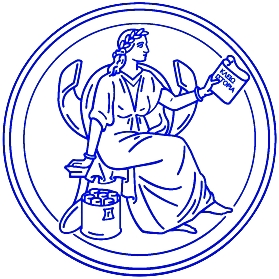 The creation of a "British Academy for the Promotion of Historical, Philosophical and Philological Studies" was first proposed in 1899 in order that Britain could be represented at meetings of European and American academies. The organisation, which has since become simply "the British Academy", was initiated as an unincorporated society on 17 December 1901, and received its Royal Charter from King Edward VII on 8 August 1902.
Since then, many of Britain's most distinguished scholars in the humanities and social sciences have been involved in the life of the academy, including
The creation of a "British Academy for the Promotion of Historical, Philosophical and Philological Studies" was first proposed in 1899 in order that Britain could be represented at meetings of European and American academies. The organisation, which has since become simply "the British Academy", was initiated as an unincorporated society on 17 December 1901, and received its Royal Charter from King Edward VII on 8 August 1902.
Since then, many of Britain's most distinguished scholars in the humanities and social sciences have been involved in the life of the academy, including
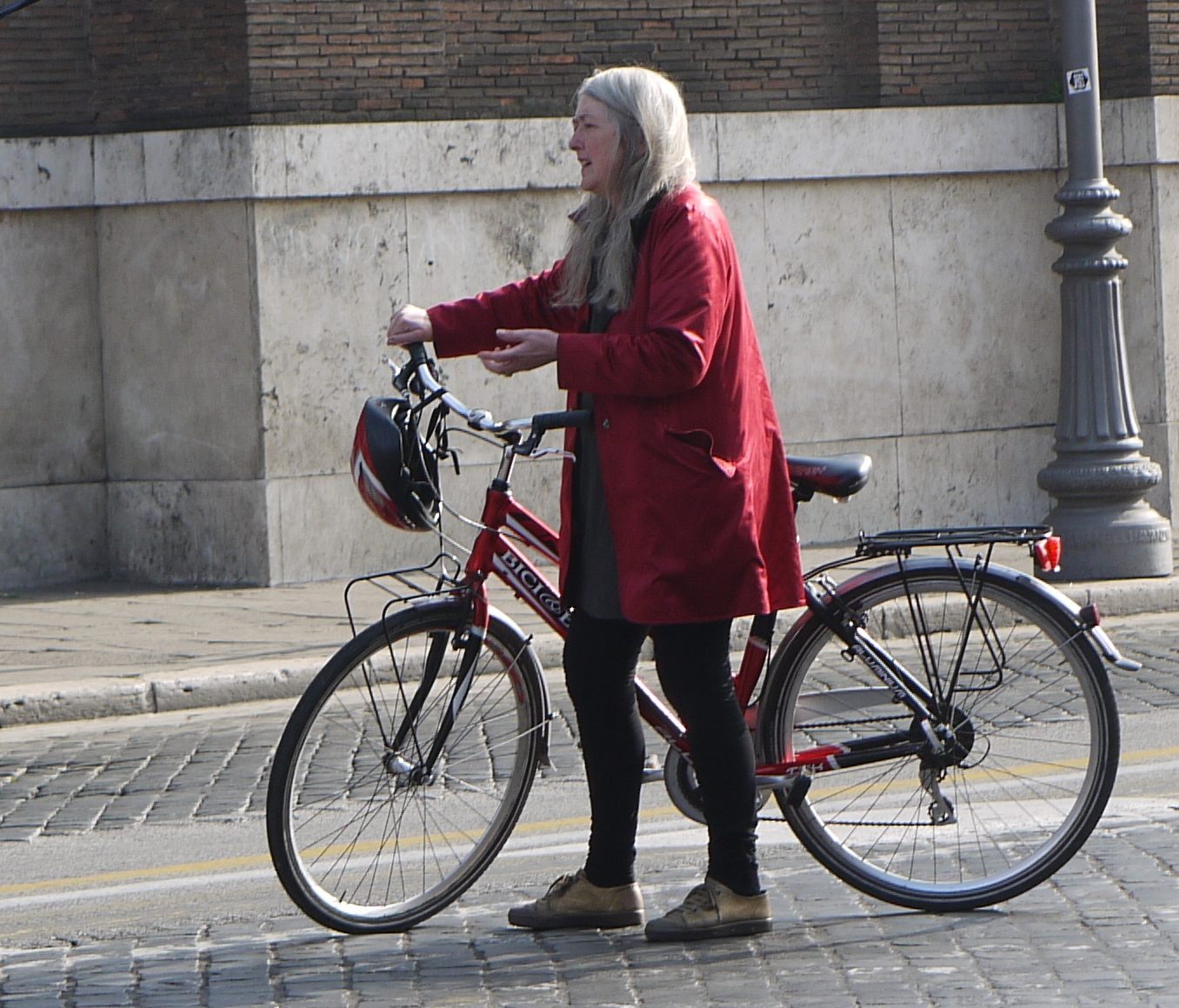
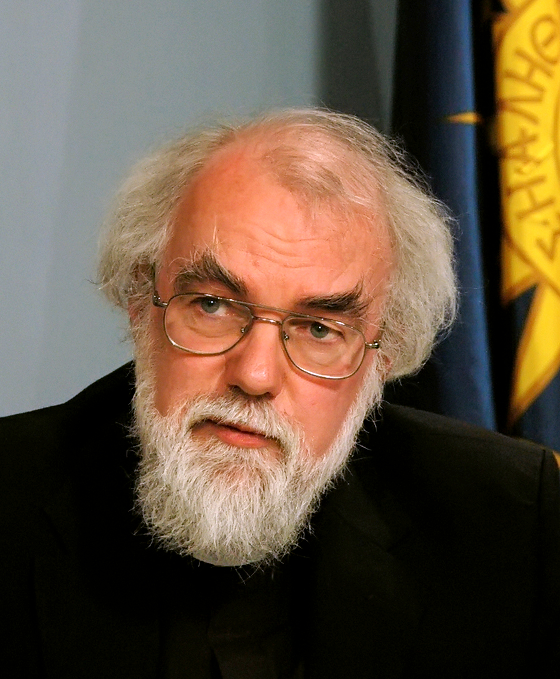 Election as a Fellow of the British Academy recognises high scholarly distinction in the humanities or social sciences, evidenced by published work. Fellows may use the letters FBA after their names. Fellows are elected into one of the following disciplinary sections:
;Humanities
* Classical Antiquity
* Theology and Religious Studies
* African and Oriental Studies
* Linguistics and Philology
* Early Modern Languages and Literatures
* Modern Languages, Literatures and other Media
* Archaeology
* Medieval Studies
* Early Modern History to c1800
* Modern History from c1800
* History of Art and Music
* Philosophy
* Culture, Media and Performance
;Social Sciences
* Law
* Economics and Economic History
* Anthropology and Geography
* Sociology, Demography and Social Statistics
* Political Studies: Political Theory, Government and International Relations
* Psychology
* Management and Business Studies
* Education
Election as a Fellow of the British Academy recognises high scholarly distinction in the humanities or social sciences, evidenced by published work. Fellows may use the letters FBA after their names. Fellows are elected into one of the following disciplinary sections:
;Humanities
* Classical Antiquity
* Theology and Religious Studies
* African and Oriental Studies
* Linguistics and Philology
* Early Modern Languages and Literatures
* Modern Languages, Literatures and other Media
* Archaeology
* Medieval Studies
* Early Modern History to c1800
* Modern History from c1800
* History of Art and Music
* Philosophy
* Culture, Media and Performance
;Social Sciences
* Law
* Economics and Economic History
* Anthropology and Geography
* Sociology, Demography and Social Statistics
* Political Studies: Political Theory, Government and International Relations
* Psychology
* Management and Business Studies
* Education
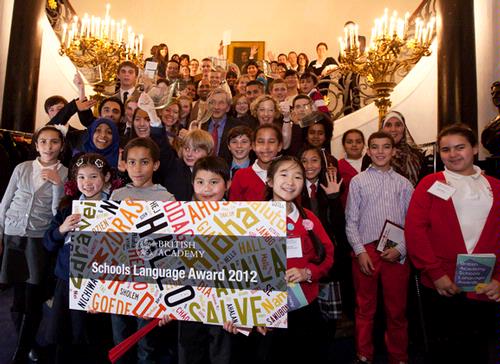 The British Academy channels substantial public funding into support for individuals and organisations pursuing humanities and social sciences research and scholarship in the UK and overseas. These funding schemes are designed to aid scholars at different stages of their academic career and include postdoctoral fellowships, Wolfson Research Professorships, Leverhulme Senior Research Fellowships, small research grants and British Academy Research Projects.
In addition to its main public funds supported by the Department for Business, Innovation and Skills, the academy also draws on private funds arising from gifts, legacies, contributions made by fellows and grants from research foundations to support a further range of research activities. In 2014/15, the academy received around £30m to support research and researchers across the humanities and social sciences. Funds available to the academy were invested in the following main areas: research career development; a portfolio of research grant opportunities, and international engagement. The demand and quality of applications submitted for academy funding remains high. This year the academy received around 3,600 applications and made 588 awards to scholars based in around 100 different universities across the UK – a success rate of 16 per cent.
The British Academy channels substantial public funding into support for individuals and organisations pursuing humanities and social sciences research and scholarship in the UK and overseas. These funding schemes are designed to aid scholars at different stages of their academic career and include postdoctoral fellowships, Wolfson Research Professorships, Leverhulme Senior Research Fellowships, small research grants and British Academy Research Projects.
In addition to its main public funds supported by the Department for Business, Innovation and Skills, the academy also draws on private funds arising from gifts, legacies, contributions made by fellows and grants from research foundations to support a further range of research activities. In 2014/15, the academy received around £30m to support research and researchers across the humanities and social sciences. Funds available to the academy were invested in the following main areas: research career development; a portfolio of research grant opportunities, and international engagement. The demand and quality of applications submitted for academy funding remains high. This year the academy received around 3,600 applications and made 588 awards to scholars based in around 100 different universities across the UK – a success rate of 16 per cent.
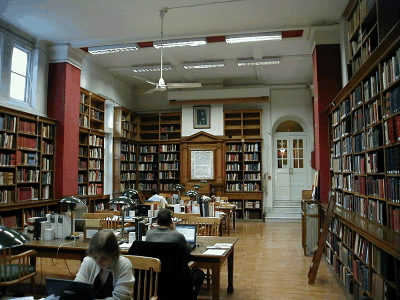 In order to promote the interests of UK research and learning around the world, the Academy works to create frameworks to support international networking and collaboration and develop the role of humanities and social sciences research in tackling global challenges. It draws on expertise from a wide range of sources from within the fellowship and on specialist advice from its seven Area Panels for Africa, China, the Middle East, Europe, South Asia, and Latin America/Caribbean.
The Academy also funds and coordinates a network of overseas institutes which provide local expertise, logistical support and often a working base for UK scholars. These include research institutes in Amman,
In order to promote the interests of UK research and learning around the world, the Academy works to create frameworks to support international networking and collaboration and develop the role of humanities and social sciences research in tackling global challenges. It draws on expertise from a wide range of sources from within the fellowship and on specialist advice from its seven Area Panels for Africa, China, the Middle East, Europe, South Asia, and Latin America/Caribbean.
The Academy also funds and coordinates a network of overseas institutes which provide local expertise, logistical support and often a working base for UK scholars. These include research institutes in Amman,
 The British Academy awards a total of 15 prizes and medals, most of them awarded annually.
*British Academy President's Medal, created in 2010 and awarded to up to five recipients each year who have demonstrated "signal service to the cause of the humanities and social sciences"
*British Academy Medal, created in 2013 and awarded to up to three recipients each year "for landmark academic achievement in any of the humanities and social science disciplines supported by the Academy"
* Burkitt Medal, created in 1923
* Kenyon Medal, first awarded in 1957
* Leverhulme Medal and Prize, created in 2002
* British Academy Book Prize for Global Cultural Understanding, established in 2013
*Peter Townsend Policy Press Prize, created in 2011
*Wiley Prize in Psychology, first awarded in 2009
*Wiley Prize in Economics, first awarded in 2013
*Brian Barry Prize in Political Science, first awarded in 2014
*Serena Medal, first awarded in 1920
*Edward Ullendorff Medal, first awarded in 2012
*Rose Mary Crawshay Prize, first awarded in 1916
*Grahame Clark Medal, first awarded in 1993
*Sir Israel Gollancz Prize, first awarded in 1925
*Landscape Archaeology Medal, first awarded in 2007
*Neil & Saras Smith Medal for Linguistics, first awarded in 2014
* Derek Allen Prize, first awarded in 1977
The British Academy awards a total of 15 prizes and medals, most of them awarded annually.
*British Academy President's Medal, created in 2010 and awarded to up to five recipients each year who have demonstrated "signal service to the cause of the humanities and social sciences"
*British Academy Medal, created in 2013 and awarded to up to three recipients each year "for landmark academic achievement in any of the humanities and social science disciplines supported by the Academy"
* Burkitt Medal, created in 1923
* Kenyon Medal, first awarded in 1957
* Leverhulme Medal and Prize, created in 2002
* British Academy Book Prize for Global Cultural Understanding, established in 2013
*Peter Townsend Policy Press Prize, created in 2011
*Wiley Prize in Psychology, first awarded in 2009
*Wiley Prize in Economics, first awarded in 2013
*Brian Barry Prize in Political Science, first awarded in 2014
*Serena Medal, first awarded in 1920
*Edward Ullendorff Medal, first awarded in 2012
*Rose Mary Crawshay Prize, first awarded in 1916
*Grahame Clark Medal, first awarded in 1993
*Sir Israel Gollancz Prize, first awarded in 1925
*Landscape Archaeology Medal, first awarded in 2007
*Neil & Saras Smith Medal for Linguistics, first awarded in 2014
* Derek Allen Prize, first awarded in 1977
Carlton House Terrace
{{authority control 1902 establishments in the United Kingdom Charities based in London Department for Business, Innovation and Skills National academies of arts and humanities Scientific organizations established in 1902 Scientific organisations based in the United Kingdom Members of the International Science Council
national academy
A national academy is an organizational body, usually operating with state financial support and approval, that co-ordinates scholarly research activities and standards for academic disciplines, most frequently in the sciences but also the hum ...
for the humanities
Humanities are academic disciplines that study aspects of human society and culture. In the Renaissance, the term contrasted with divinity and referred to what is now called classics, the main area of secular study in universities at th ...
and the social science
Social science is one of the branches of science, devoted to the study of societies and the relationships among individuals within those societies. The term was formerly used to refer to the field of sociology, the original "science of soc ...
s.
It was established in 1902 and received its royal charter
A royal charter is a formal grant issued by a monarch under royal prerogative as letters patent. Historically, they have been used to promulgate public laws, the most famous example being the English Magna Carta (great charter) of 1215, but ...
in the same year. It is now a fellowship of more than 1,000 leading scholars spanning all disciplines across the humanities and social sciences and a funding body for research projects across the United Kingdom. The academy is a self-governing and independent registered charity, based at 10–11 Carlton House Terrace in London
London is the capital and List of urban areas in the United Kingdom, largest city of England and the United Kingdom, with a population of just under 9 million. It stands on the River Thames in south-east England at the head of a estuary dow ...
.
The British Academy is funded with an annual grant from the Department for Business, Innovation and Skills (BIS). In 2014–15, the British Academy's total income was £33,100,000, including £27,000,000 from BIS. £32,900,000 was distributed during the year in research grants, awards and charitable activities.
Purposes
 The academy states that it has five fundamental purposes:
* To speak up for the humanities and the social sciences
* To invest in the very best researchers and research
* To inform and enrich debate around society's greatest questions
* To ensure sustained international engagement and collaboration
* To make the most of the Academy's assets to secure the Academy for the future.
The academy states that it has five fundamental purposes:
* To speak up for the humanities and the social sciences
* To invest in the very best researchers and research
* To inform and enrich debate around society's greatest questions
* To ensure sustained international engagement and collaboration
* To make the most of the Academy's assets to secure the Academy for the future.
History
 The creation of a "British Academy for the Promotion of Historical, Philosophical and Philological Studies" was first proposed in 1899 in order that Britain could be represented at meetings of European and American academies. The organisation, which has since become simply "the British Academy", was initiated as an unincorporated society on 17 December 1901, and received its Royal Charter from King Edward VII on 8 August 1902.
Since then, many of Britain's most distinguished scholars in the humanities and social sciences have been involved in the life of the academy, including
The creation of a "British Academy for the Promotion of Historical, Philosophical and Philological Studies" was first proposed in 1899 in order that Britain could be represented at meetings of European and American academies. The organisation, which has since become simply "the British Academy", was initiated as an unincorporated society on 17 December 1901, and received its Royal Charter from King Edward VII on 8 August 1902.
Since then, many of Britain's most distinguished scholars in the humanities and social sciences have been involved in the life of the academy, including John Maynard Keynes
John Maynard Keynes, 1st Baron Keynes, ( ; 5 June 1883 – 21 April 1946), was an English economist whose ideas fundamentally changed the theory and practice of macroeconomics and the economic policies of governments. Originally trained in ...
, Isaiah Berlin, C. S. Lewis and Henry Moore.
Until 1927–28 the academy had no premises. Then it moved to some rooms in No. 6 Burlington Gardens. In 1968 it moved the short distance to Burlington House. It subsequently moved to headquarters near Regent's Park. Then in 1998 the Academy moved to its present headquarters in Carlton House Terrace. Overlooking St James's Park, the terrace was designed by John Nash and built in the 1820s and 1830s. Number 10 was formerly the London residence of the Ridley family and number 11 was from 1856 to 1875 the home of Prime Minister William Gladstone
William Ewart Gladstone ( ; 29 December 1809 – 19 May 1898) was a British statesman and Liberal politician. In a career lasting over 60 years, he served for 12 years as Prime Minister of the United Kingdom, spread over four non-conse ...
.
In March 2010, the academy embarked on a £2.75m project to renovate and restore the public rooms in No. 11, following the departure of former tenant the Foreign Press Association, and link the two buildings together. The work was completed in January 2011 and the new spaces include a new 150-seat Wolfson Auditorium are available for public hire. In addition to offices for its staff 10 - 11 Carlton House Terrace is used for academy conferences and events and parts of the building are available on a private hire basis for events.
The history, problems and achievements of the academy have been recorded in works by two of its secretaries. Sir Frederic Kenyon's volume of 37 pages covers the years up to 1951; Sir Mortimer Wheeler's volume covers the years 1949 to 1968.
Fellowship

 Election as a Fellow of the British Academy recognises high scholarly distinction in the humanities or social sciences, evidenced by published work. Fellows may use the letters FBA after their names. Fellows are elected into one of the following disciplinary sections:
;Humanities
* Classical Antiquity
* Theology and Religious Studies
* African and Oriental Studies
* Linguistics and Philology
* Early Modern Languages and Literatures
* Modern Languages, Literatures and other Media
* Archaeology
* Medieval Studies
* Early Modern History to c1800
* Modern History from c1800
* History of Art and Music
* Philosophy
* Culture, Media and Performance
;Social Sciences
* Law
* Economics and Economic History
* Anthropology and Geography
* Sociology, Demography and Social Statistics
* Political Studies: Political Theory, Government and International Relations
* Psychology
* Management and Business Studies
* Education
Election as a Fellow of the British Academy recognises high scholarly distinction in the humanities or social sciences, evidenced by published work. Fellows may use the letters FBA after their names. Fellows are elected into one of the following disciplinary sections:
;Humanities
* Classical Antiquity
* Theology and Religious Studies
* African and Oriental Studies
* Linguistics and Philology
* Early Modern Languages and Literatures
* Modern Languages, Literatures and other Media
* Archaeology
* Medieval Studies
* Early Modern History to c1800
* Modern History from c1800
* History of Art and Music
* Philosophy
* Culture, Media and Performance
;Social Sciences
* Law
* Economics and Economic History
* Anthropology and Geography
* Sociology, Demography and Social Statistics
* Political Studies: Political Theory, Government and International Relations
* Psychology
* Management and Business Studies
* Education
Funding schemes
 The British Academy channels substantial public funding into support for individuals and organisations pursuing humanities and social sciences research and scholarship in the UK and overseas. These funding schemes are designed to aid scholars at different stages of their academic career and include postdoctoral fellowships, Wolfson Research Professorships, Leverhulme Senior Research Fellowships, small research grants and British Academy Research Projects.
In addition to its main public funds supported by the Department for Business, Innovation and Skills, the academy also draws on private funds arising from gifts, legacies, contributions made by fellows and grants from research foundations to support a further range of research activities. In 2014/15, the academy received around £30m to support research and researchers across the humanities and social sciences. Funds available to the academy were invested in the following main areas: research career development; a portfolio of research grant opportunities, and international engagement. The demand and quality of applications submitted for academy funding remains high. This year the academy received around 3,600 applications and made 588 awards to scholars based in around 100 different universities across the UK – a success rate of 16 per cent.
The British Academy channels substantial public funding into support for individuals and organisations pursuing humanities and social sciences research and scholarship in the UK and overseas. These funding schemes are designed to aid scholars at different stages of their academic career and include postdoctoral fellowships, Wolfson Research Professorships, Leverhulme Senior Research Fellowships, small research grants and British Academy Research Projects.
In addition to its main public funds supported by the Department for Business, Innovation and Skills, the academy also draws on private funds arising from gifts, legacies, contributions made by fellows and grants from research foundations to support a further range of research activities. In 2014/15, the academy received around £30m to support research and researchers across the humanities and social sciences. Funds available to the academy were invested in the following main areas: research career development; a portfolio of research grant opportunities, and international engagement. The demand and quality of applications submitted for academy funding remains high. This year the academy received around 3,600 applications and made 588 awards to scholars based in around 100 different universities across the UK – a success rate of 16 per cent.
International work
 In order to promote the interests of UK research and learning around the world, the Academy works to create frameworks to support international networking and collaboration and develop the role of humanities and social sciences research in tackling global challenges. It draws on expertise from a wide range of sources from within the fellowship and on specialist advice from its seven Area Panels for Africa, China, the Middle East, Europe, South Asia, and Latin America/Caribbean.
The Academy also funds and coordinates a network of overseas institutes which provide local expertise, logistical support and often a working base for UK scholars. These include research institutes in Amman,
In order to promote the interests of UK research and learning around the world, the Academy works to create frameworks to support international networking and collaboration and develop the role of humanities and social sciences research in tackling global challenges. It draws on expertise from a wide range of sources from within the fellowship and on specialist advice from its seven Area Panels for Africa, China, the Middle East, Europe, South Asia, and Latin America/Caribbean.
The Academy also funds and coordinates a network of overseas institutes which provide local expertise, logistical support and often a working base for UK scholars. These include research institutes in Amman, Ankara
Ankara ( , ; ), historically known as Ancyra and Angora, is the capital of Turkey. Located in the central part of Anatolia, the city has a population of 5.1 million in its urban center and over 5.7 million in Ankara Province, mak ...
, Athens
Athens ( ; el, Αθήνα, Athína ; grc, Ἀθῆναι, Athênai (pl.) ) is both the capital city, capital and List of cities and towns in Greece, largest city of Greece. With a population close to four million, it is also the seventh List ...
, Jerusalem
Jerusalem (; he, יְרוּשָׁלַיִם ; ar, القُدس ) (combining the Biblical and common usage Arabic names); grc, Ἱερουσαλήμ/Ἰεροσόλυμα, Hierousalḗm/Hierosóluma; hy, Երուսաղեմ, Erusałēm. i ...
, Nairobi
Nairobi ( ) is the capital and largest city of Kenya. The name is derived from the Maasai phrase ''Enkare Nairobi'', which translates to "place of cool waters", a reference to the Nairobi River which flows through the city. The city prope ...
, Rome
, established_title = Founded
, established_date = 753 BC
, founder = King Romulus ( legendary)
, image_map = Map of comune of Rome (metropolitan city of Capital Rome, region Lazio, Italy).svg
, map_caption ...
and Tehran, as well as UK-based specialist learned societies which run strategic research programmes in other parts of the world including Africa, Latin America and South and South East Asia.
Higher education and research
As the UK's national voice for the humanities and social sciences, the British Academy seeks to promote and protect the interests and health of these disciplines and their research base. It makes independent representations to the government and other bodies on relevant higher education and research issues, contributes statements and submissions to formal consultations and organises a range of policy events and discussions, liaising regularly with learned societies, universities, national academies and other relevant organisations.British Academy's policy work
The British Academy's Fellowship represents breadth and excellence of expertise across these disciplines, and the Academy's policy work is dedicated to applying that insight to policy issues for public benefit and societal well-being. The goal is to enlighten the context, meaning and practicalities of policy challenges. This work is meant to bring independence, authority and objectivity to complex issues, such as public policy, skills, education and research. From reports to small meetings, the British Academy provides a forum for examining issues that are important for the society and the economy.Public events
The British Academy organises a wide-ranging annual programme of more than 50 public lectures, panel discussions, conferences and seminars showcasing new research and debating topical issues. This includes a number of long-established lecture series, such as the Shakespeare Lecture, first given in 1911. Most events are free and most take place at the Academy's headquarters in Carlton House TerraceAward of prizes
 The British Academy awards a total of 15 prizes and medals, most of them awarded annually.
*British Academy President's Medal, created in 2010 and awarded to up to five recipients each year who have demonstrated "signal service to the cause of the humanities and social sciences"
*British Academy Medal, created in 2013 and awarded to up to three recipients each year "for landmark academic achievement in any of the humanities and social science disciplines supported by the Academy"
* Burkitt Medal, created in 1923
* Kenyon Medal, first awarded in 1957
* Leverhulme Medal and Prize, created in 2002
* British Academy Book Prize for Global Cultural Understanding, established in 2013
*Peter Townsend Policy Press Prize, created in 2011
*Wiley Prize in Psychology, first awarded in 2009
*Wiley Prize in Economics, first awarded in 2013
*Brian Barry Prize in Political Science, first awarded in 2014
*Serena Medal, first awarded in 1920
*Edward Ullendorff Medal, first awarded in 2012
*Rose Mary Crawshay Prize, first awarded in 1916
*Grahame Clark Medal, first awarded in 1993
*Sir Israel Gollancz Prize, first awarded in 1925
*Landscape Archaeology Medal, first awarded in 2007
*Neil & Saras Smith Medal for Linguistics, first awarded in 2014
* Derek Allen Prize, first awarded in 1977
The British Academy awards a total of 15 prizes and medals, most of them awarded annually.
*British Academy President's Medal, created in 2010 and awarded to up to five recipients each year who have demonstrated "signal service to the cause of the humanities and social sciences"
*British Academy Medal, created in 2013 and awarded to up to three recipients each year "for landmark academic achievement in any of the humanities and social science disciplines supported by the Academy"
* Burkitt Medal, created in 1923
* Kenyon Medal, first awarded in 1957
* Leverhulme Medal and Prize, created in 2002
* British Academy Book Prize for Global Cultural Understanding, established in 2013
*Peter Townsend Policy Press Prize, created in 2011
*Wiley Prize in Psychology, first awarded in 2009
*Wiley Prize in Economics, first awarded in 2013
*Brian Barry Prize in Political Science, first awarded in 2014
*Serena Medal, first awarded in 1920
*Edward Ullendorff Medal, first awarded in 2012
*Rose Mary Crawshay Prize, first awarded in 1916
*Grahame Clark Medal, first awarded in 1993
*Sir Israel Gollancz Prize, first awarded in 1925
*Landscape Archaeology Medal, first awarded in 2007
*Neil & Saras Smith Medal for Linguistics, first awarded in 2014
* Derek Allen Prize, first awarded in 1977
Presidents of the British Academy
* The Lord Reay 1902–1907 * Sir Edward Maunde Thompson 1907–1909 * Samuel Henry Butcher 1909–1910 *Sir Adolphus Ward
Sir Adolphus William Ward (2 December 1837 – 19 June 1924) was an English historian and man of letters.
Life
Ward was born at Hampstead, London, the son of John Ward. He was educated in Germany and at Peterhouse, Cambridge.
In 1866, Wa ...
1911–1913
* The Viscount Bryce 1913–1917
*Sir Frederic Kenyon
Sir Frederic George Kenyon (15 January 1863 – 23 August 1952) was a British palaeographer and biblical and classical scholar. He held a series of posts at the British Museum from 1889 to 1931. He was also the president of the British Academy fr ...
1917–1921
* The Earl of Balfour 1921–1928
* H. A. L. Fisher 1928–1932
* John William Mackail 1932–1936
*Sir David Ross
Sir William David Ross (15 April 1877 – 5 May 1971), known as David Ross but usually cited as W. D. Ross, was a Scottish Aristotelian philosopher, translator, WWI veteran, civil servant, and university administrator. His best-known wor ...
1936–1940
* Sir J. H. Clapham 1940–1946
* Sir Idris Bell 1946–1950
* Sir Charles Kingsley Webster 1950–1954
* Sir George Norman Clark 1954–1958
* Sir Maurice Bowra 1958–1962
* The Lord Robbins 1962–1967
*Sir Kenneth Clinton Wheare
Sir Kenneth Clinton Wheare, CMG (26 March 1907 – 7 September 1979) was an Australian academic, who spent most of his career at Oxford University in England. He was an expert on the constitutions of the British Commonwealth. He advised constitut ...
1967–1971
* Sir Denys Lionel Page 1971–1974
* Sir Isaiah Berlin 1974–1978
* Sir Kenneth Dover 1978–1981
* Owen Chadwick 1981–1985
* Sir Randolph Quirk 1985–1989
* Sir Anthony Kenny 1989–1993
* Sir Keith Thomas 1993–1997
* Sir Tony Wrigley 1997–2001
* The Viscount Runciman of Doxford 2001–2004
* The Baroness O'Neill of Bengarve 2005–2009
* Sir Adam Roberts 2009–2013
* The Lord Stern of Brentford 2013–2017
* Sir David Cannadine 2017–2021
* Julia Black 2021–2025
Secretaries of the British Academy
* Sir Israel Gollancz (1902–1930) * Sir Frederic G. Kenyon (1930–1949) * Sir Mortimer Wheeler (1949–1968) * Derek Allen (1969–1973) * N. J. Williams (1973–1977) * J. P. Carswell (1978–1983) * P. W. H. Brown (1983–2006) * Robin Jackson (2006–2015) * Alun Evans (2015–2019) *Hetan Shah
Hetan Shah is the chief executive of the British Academy, a visiting professor at King's College London and deputy chair of the Ada Lovelace Institute. He served as executive director of the Royal Statistical Society from 2011 to 2019.
Early lif ...
(2020-)
Publications
;Lectures and conferences papers ;Monographs ;Research seriesSee also
* :Fellows of the British Academy *Royal Society
The Royal Society, formally The Royal Society of London for Improving Natural Knowledge, is a learned society and the United Kingdom's national academy of sciences. The society fulfils a number of roles: promoting science and its benefits, r ...
References
External links
*Carlton House Terrace
{{authority control 1902 establishments in the United Kingdom Charities based in London Department for Business, Innovation and Skills National academies of arts and humanities Scientific organizations established in 1902 Scientific organisations based in the United Kingdom Members of the International Science Council